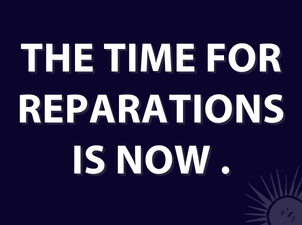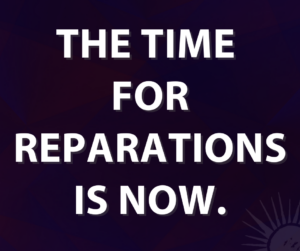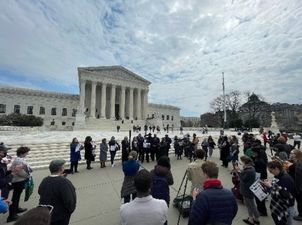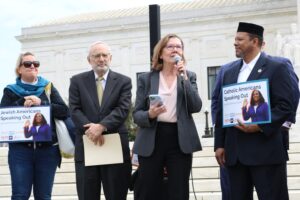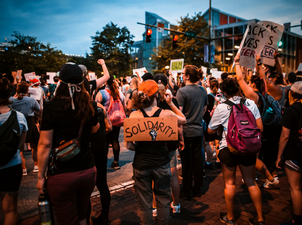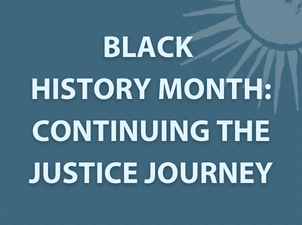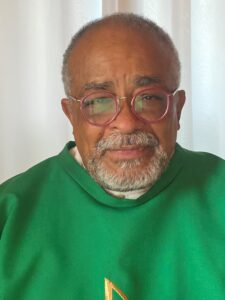
Rev. Dr. Jacqui Lewis Delivers Keynote Speech at H.R.40 Policy Update
Elissa Hackerson
June 8, 2022
On June 1, 2022, NETWORK Lobby for Catholic Social Justice hosted a webinar to educate and mobilize advocates about an H.R.40-style federal reparations committee to study the impact of slavery — and the racist policies and laws that were created in its wake. NETWORK Staff was joined by Rev. Dr. Jacqui Lewis, Senior Minister for Public Theology and Transformation at Middle Collegiate Church in New York City. Rev. Lewis delivered a keynote speech that positioned reparations in a scriptural, theological framework for over 300 webinar attendees.
Rev. Lewis’s reflection zoomed in on human history with examples of humans capturing and conquering God’s people. And she challenged the ideology that some people deserve access to freedom and liberty more than others. She asserted that the ideology of whiteness has broken Black people, baptized the Holocaust, and broke Indigenous people. Reparations will bring healing, and we who have followed a Jewish rabbi into a world of faith seek repair.
Repairers of the Breach
Rev. Lewis began her remarks with scripture as a frame, choosing a beautiful call to the kind of worship, fasting and feast that God wants in Isaiah 58. “A call to be different kinds of faithful people. A call to Israel then, and to us now, to fix what’s broken in the world…to heal the world. When we do this, God says our names will be changed. We will be called repairers of the breach, restorers of streets to live in.”
Why Reparations?
“Because we have participated, friends, in the breaking of the covenant with God. In the breaking of God’s design, in the dismantling of God’s hope and dream for us. And, I’m not talking about what happened in the Garden [of Eden] where Adam and Eve disobey and eat of the tree of knowledge of good and evil.”
Sacrifice Honors God’s Creation
Rev. Lewis goes on to share that from our Biblical origin story until today, our human desire to be like God, to make a world with God, has been corrupted along the way. White supremacists have imposed their worldview and ideology in a biased way, subduing God’s people.
We are to fast, worship, welcome the outsider, feed the hungry, clothe the naked…not hold onto ideology and a sense of supremacy. This connection to repair and connection to God is the healing and reparations required to “restore the created order” and realize that everyone has enough in “God’s economy.”








